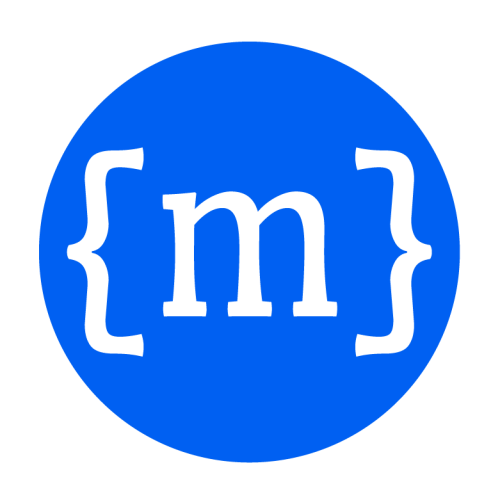Cloud Gotchas
This chapter explores more advanced topics of MBrace and the cloud. In particular, we will look at common misconceptions and errors that occur when programming in MBrace.
Follow the instructions and complete the assignments described below.
Local vs. Remote execution
MBrace makes it possible to execute cloud workflows in the local process
just as if they were asynchronous workflows: parallelism is achieved using the local threadpool.
This can be done using the cluster.Runlocally() method:
1: 2: |
|
As demonstrated above, local versus remote execution comes with minute differences w.r.t. to the computed result as well as observed side-effects.
Let's try a simple example. Just by looking at the example below, can you guess what the difference will be when run locally as opposed to remotely?
1:
|
|
While the above is a mostly harmless example, what can be said about the example below?
1: 2: 3: 4: 5: 6: |
|
Why does the error happen? Can you suggest a way the above could be fixed?
Cloud workflows and serialization I
It is often the case that our code relies on objects that are not serializable. But what happens when this code happens to be running in the cloud?
1: 2: 3: 4: 5: |
|
What will happen if we attempt to execute the snippet above?
1:
|
|
Assingment: can you rewrite the snippet above so that it no longer fails? Tip: can you detect what segments of the code entail transition to a different machine?
Cloud workflows and serialization II
Let us now consider the following type implementation:
1: 2: 3: 4: 5: 6: |
|
Can you predict what will happen if we run the following line?
1:
|
|
Can you fix the problem only by changing the Increment() implementation?
Now, let's try the following example:
1: 2: 3: 4: 5: 6: |
|
Can you explain why the behaviour of the above differs from the original example?
Cloud workflows and object identity
Consider the following snippet:
1: 2: 3: 4: 5: |
|
Can you guess its result?
1: 2: |
|
Can you explain why this behaviour happens?
Cloud workflows and mutation
Consider the following sample:
1: 2: 3: 4: 5: |
|
Can you guess its result?
1: 2: |
|
Can you explain why this behaviour happens?
Summary
In this tutorial, you've learned how to reason about exceptions and faults in MBrace. Continue with further samples to learn more about the MBrace programming model.
Note, you can use the above techniques from both scripts and compiled projects. To see the components referenced by this script, see ThespianCluster.fsx or AzureCluster.fsx.
from MBrace.Core
Full name: 400-cloud-gotchas.cluster
Full name: Config.GetCluster
Gets or creates a new Thespian cluster session.
static member CommandLine : string
static member CurrentDirectory : string with get, set
static member Exit : exitCode:int -> unit
static member ExitCode : int with get, set
static member ExpandEnvironmentVariables : name:string -> string
static member FailFast : message:string -> unit + 1 overload
static member GetCommandLineArgs : unit -> string[]
static member GetEnvironmentVariable : variable:string -> string + 1 overload
static member GetEnvironmentVariables : unit -> IDictionary + 1 overload
static member GetFolderPath : folder:SpecialFolder -> string + 1 overload
...
nested type SpecialFolder
nested type SpecialFolderOption
Full name: System.Environment
Full name: Microsoft.FSharp.Core.ExtraTopLevelOperators.printfn
Full name: 400-cloud-gotchas.currentDirectory
static member CreateDirectory : path:string -> DirectoryInfo + 1 overload
static member Delete : path:string -> unit + 1 overload
static member EnumerateDirectories : path:string -> IEnumerable<string> + 2 overloads
static member EnumerateFileSystemEntries : path:string -> IEnumerable<string> + 2 overloads
static member EnumerateFiles : path:string -> IEnumerable<string> + 2 overloads
static member Exists : path:string -> bool
static member GetAccessControl : path:string -> DirectorySecurity + 1 overload
static member GetCreationTime : path:string -> DateTime
static member GetCreationTimeUtc : path:string -> DateTime
static member GetCurrentDirectory : unit -> string
...
Full name: System.IO.Directory
Full name: 400-cloud-gotchas.getContents
Directory.EnumerateFiles(path: string, searchPattern: string) : Collections.Generic.IEnumerable<string>
Directory.EnumerateFiles(path: string, searchPattern: string, searchOption: SearchOption) : Collections.Generic.IEnumerable<string>
from Microsoft.FSharp.Collections
Full name: Microsoft.FSharp.Collections.Seq.toArray
Full name: 400-cloud-gotchas.downloader
type WebClient =
inherit Component
new : unit -> WebClient
member BaseAddress : string with get, set
member CachePolicy : RequestCachePolicy with get, set
member CancelAsync : unit -> unit
member Credentials : ICredentials with get, set
member DownloadData : address:string -> byte[] + 1 overload
member DownloadDataAsync : address:Uri -> unit + 1 overload
member DownloadFile : address:string * fileName:string -> unit + 1 overload
member DownloadFileAsync : address:Uri * fileName:string -> unit + 1 overload
member DownloadString : address:string -> string + 1 overload
...
Full name: System.Net.WebClient
--------------------
Net.WebClient() : unit
type Session =
new : unit -> Session
member Increment : unit -> 'a
Full name: 400-cloud-gotchas.Session
--------------------
new : unit -> Session
Full name: 400-cloud-gotchas.Session.Increment
Full name: 400-cloud-gotchas.Session2.cluster
Full name: 400-cloud-gotchas.Session2.value
Full name: 400-cloud-gotchas.Session2.increment
from 400-cloud-gotchas
Full name: 400-cloud-gotchas.example2
type Object =
new : unit -> obj
member Equals : obj:obj -> bool
member GetHashCode : unit -> int
member GetType : unit -> Type
member ToString : unit -> string
static member Equals : objA:obj * objB:obj -> bool
static member ReferenceEquals : objA:obj * objB:obj -> bool
Full name: System.Object
--------------------
Object() : unit
Full name: 400-cloud-gotchas.example3

